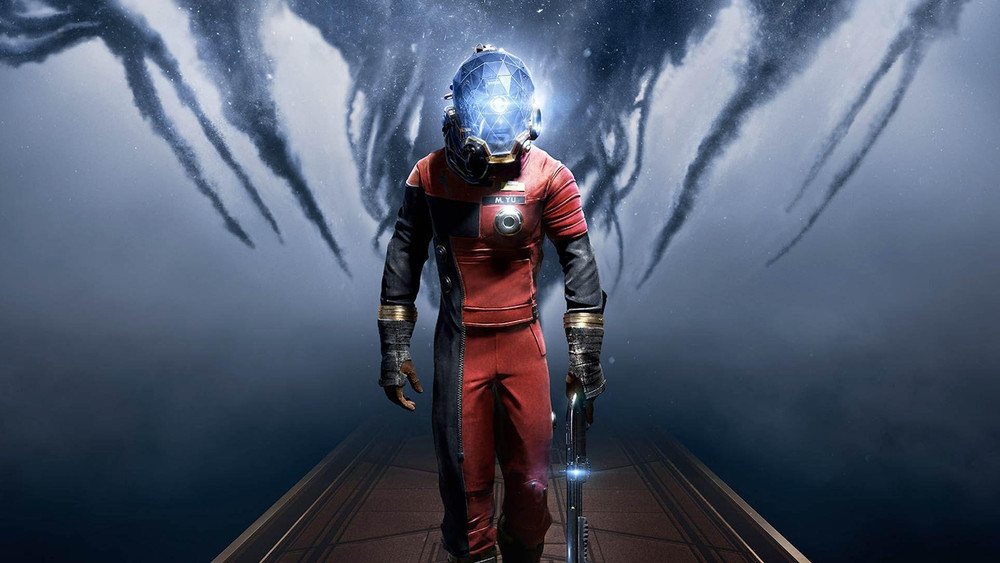As far as telling stories goes, there’s certain things video games can do that movies can’t. Because video games are a relatively new medium, however, we rarely see these things. Video games tend to copy movies in their way of telling stories: a straightforward plot that shows us everything – little to no room for internal dialogue, for example. Only recently, with the release of BioShock (which bases its succes on Half-Life, Deus ex and the likes – shooters kind of got the point sooner), the way storydriven video games told their stories changed. Alan Wake gets this point. It gets it in an entirely different way the shoot-em-ups seemed to have gotten it lately. But it gets it brilliantly.
Alan, Wake Up
BioShock enabled us to collect Audio Diaries, which were basically side stories that played while you were out there, killing baddies. But it didn’t stop there: these Diaries also commented on the events in the game, or society as a whole. Now, I must admit, that even I find the idea slightly silly: it’s only a video game, it’s only entertainment after all. But what if it wasn’t?
Alan Wake builds upon the concept of these audio diaries. Only they’re not a side track in your story anymore. They are the story. Alan Wake, a successful writer with writer’s block, goes on a holiday in Bright Falls, a quiet mountain town. That’s where shit starts hitting the fan, as his wife disappears and he starts finding pages of a horror story he has written – but can’t remember doing so.
These pages are where the above point sets in: they describe the action in the game. You read about Alan getting attacked by a chainsaw-wielding monster? You bet you’ll get one on your tail a minute later. But they’re not just used as premonition tools. They’re also there to help you understand the sub text and motivations of side characters – which is a pretty nifty feat, seeing how you play ninety percent of the game only accompanied by your trusty flash light. On your first play-through, you might wonder if all these people are insane. But once you spend your time collecting the manuscript pages (80 percent of which are findable as you go along – but it’s the 20 percent of hidden ones that make it interesting), you might find out that the world created in this game is not as harebrained and flat as you first thought it was.
Episodic Flashlight Action!
If you would ask me – from a gameplay perspective – to compare this game to another one, it would have to be the latest iteration of the Alone in the Dark series. The game was a mixed bag, with truly great ideas but terrible execution. In Alan Wake, the former is true. The latter isn’t. The game is polished beyond belief, with only a few gripes to make.
Like Alone in the Dark, Alan Wake adopts an episodic storytelling mechanism. There’s six episodes which last about an hour to ninety minutes each. Each episode starts with a “previously on…” summary, so you can play at leasure and not get lost in the tangled web that is the plot (okay, you will get lost, but you’re supposed to). Every episode has a theme and a location in which the action takes place – or, usually a place for you to get to. There isn’t a single episode that doesn’t advance the plot, but you can feel the seams of the genre ripping at times: due to gameplay mechanics, the bogies only come out at night, so you know the story will set you up to be alone in the dark. The fun part is: our protagonist pokes fun of it himself, so it’s fair game. The developers know – just like people writing a horror movie know there’s certain conventions to adhere.
The plot is strikingly similar to Alone in the Dark: it involves light, darkness, love and monsters. As opposed to Alone in the Dark, this game actually has a clear idea how to handle the themes and turn them into a gripping experience. The story takes more twists and turns than a Stephen King novel (there’s a reason they quote him several times throughout the game) but still manages to remain interesting. It causes an irritation which left me wanting to know more. The story leaves the door open – it deliberately doesn’t tell you everything. As with any story doing this, though, it requires a bit of good-will from those experiencing it.
Gathering this good will is easy, though, because the gameplay is simply amazing. The premise is this: you can’t hurt the baddies without burning away their darkness with the flashlight. Once their darkness is gone, they become vulnerable. It’s a simple trick, but once again thought over nicely: you can use the flashlight, but there’s also flares and light grenades to be had. It’s a tough concept to pull off, but Alan Wake keeps things interesting for the duration of the game. And beyond.
In All…
It does sound like I have nothing but praise for this game. That’s almost true – but there are some gripes. Unfortunately, the cut scenes look like zombies looking for brains. The characters never seem to look at each other directly, and their mouth movement… not so great. But the voice acting is great (expect to hear at least two familiar voices from Max Payne), so it makes up for it. It’s just a shame for a storydriven game that’s had so much time for polish.
But other than that, I’d have a hard time coming up with anything bad to say. Some would say it’s boring, probably. It’s true: no one gets chopped to bits. But those are the people who prefer Saw over Shining: people who want to see a lot of blood and gore are not in the right place to be playing Alan Wake. What Alan Wake does convey, is the nagging, irrational sense of nightmare that a lot of Hollywood horror stories seem to forget about. Horror is not about blood or gore. It’s about foreshadowing, and that feeling you just can’t grasp your surroundings or understand what’s going on.
Alan Wake might not be a game for everyone, but it is a game made especially for me.



